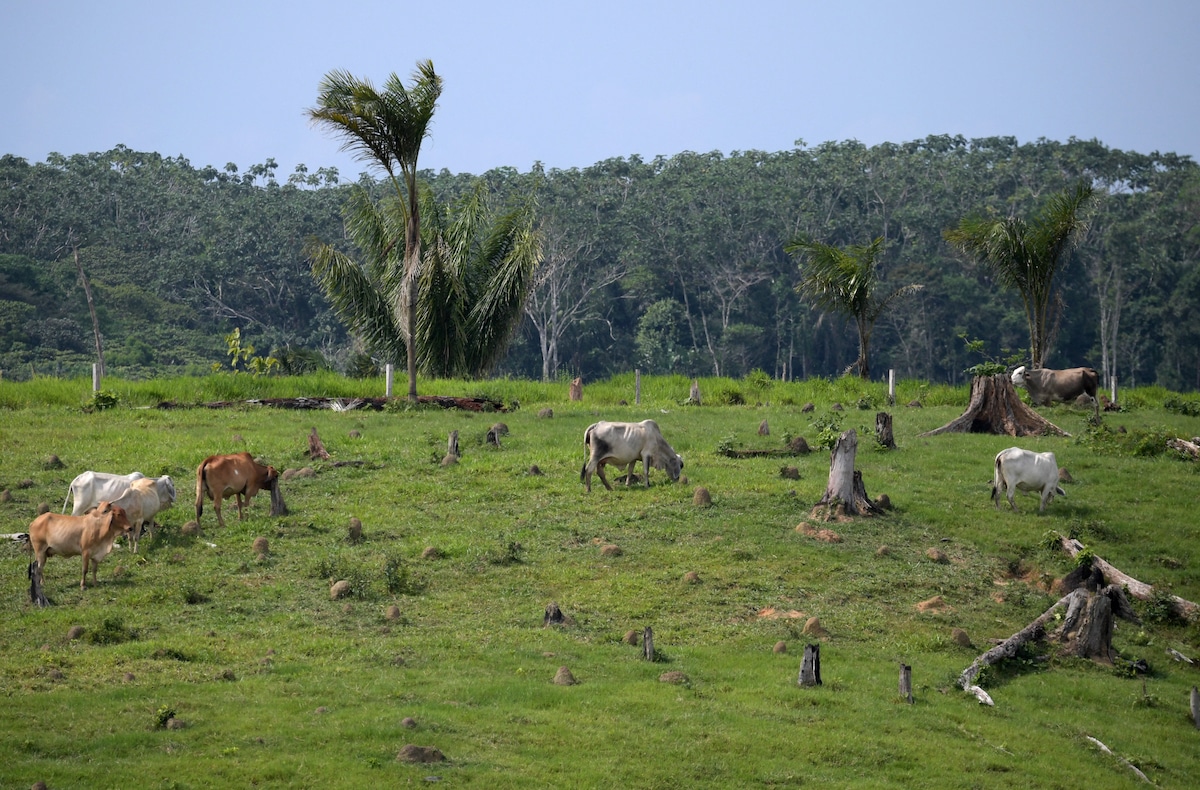Global Forest Area Declined by 60% Since 1960, Study Finds

 Why you can trust us
Why you can trust us
Founded in 2005 as an Ohio-based environmental newspaper, EcoWatch is a digital platform dedicated to publishing quality, science-based content on environmental issues, causes, and solutions.
A new study has found an alarming loss in forest areas globally, including that global forest area per capita has dropped from 1.4 hectares in 1960 to just 0.5 hectares per person by 2019, a 60% decline.
The research, lead by Ronald Estoque from the Center for Biodiversity and Climate Change, Forestry and Forest Products Research Institute (FFPRI) and published in Environmental Research Letters, found a total forest decline by 81.7 million hectares since 1960.
According to the study, global gross forest loss over the time period (1960 to 2019) reached 437.3 million hectares, which outweighed the total gross forest gain of 355.6 million hectares during that time.
This forest loss combined with an increasing population from around 3 billion people in 1960 to 7.7 billion people in 2019 has led to a 60% decrease in forest area per capita. Loss of this scale will impact millions of people, the study explained.
“The continuous loss and degradation of forests affect the integrity of forest ecosystems, reducing their ability to generate and provide essential services and sustain biodiversity,” the study authors said, as reported by IOP Publishing. “It also impacts the lives of at least 1.6 billion people worldwide, predominantly in developing countries, who depend on forests for various purposes.”
Forests cover nearly one-third of the planet currently and are essential for biodiversity. Globally, forests are home to more than 60,000 tree species and provide habitat to about 80% of all amphibian species, 75% of bird species and 68% of mammal species, according to United Nations Environment Programme. But disappearing and fragmenting forests threaten these unique species.
But humans have altered nearly 75% of land on Earth, including forests. Aside from threatening biodiversity, the UN warns that forests are important for curbing climate change and supporting all life on Earth, including human life. Deforestation and other forms of land degradation also contribute to increasing cases of zoonotic diseases.
While illegal logging plays a part in forest loss, the No. 1 cause of deforestation is agriculture, as more and more land is razed for growing crops or raising livestock. More monitoring, preservation, and reforestation globally is necessary to maintain forested land and prevent major biodiversity loss.
“Today, monitoring of the world’s forests is an integral part of various global environmental and social initiatives, including the Sustainable Development Goals (SDGs), the Paris Climate Agreement and the Post-2020 Global Biodiversity Framework,” the authors said. “To help achieve the goals of these initiatives, there is a profound need to reverse, or at least flatten, the global net forest loss curve by conserving the world’s remaining forests and restoring and rehabilitating degraded forest landscapes.”
Subscribe to get exclusive updates in our daily newsletter!
By signing up, you agree to the Terms of Use and Privacy Policy & to receive electronic communications from EcoWatch Media Group, which may include marketing promotions, advertisements and sponsored content.

 233k
233k  41k
41k  Subscribe
Subscribe 




